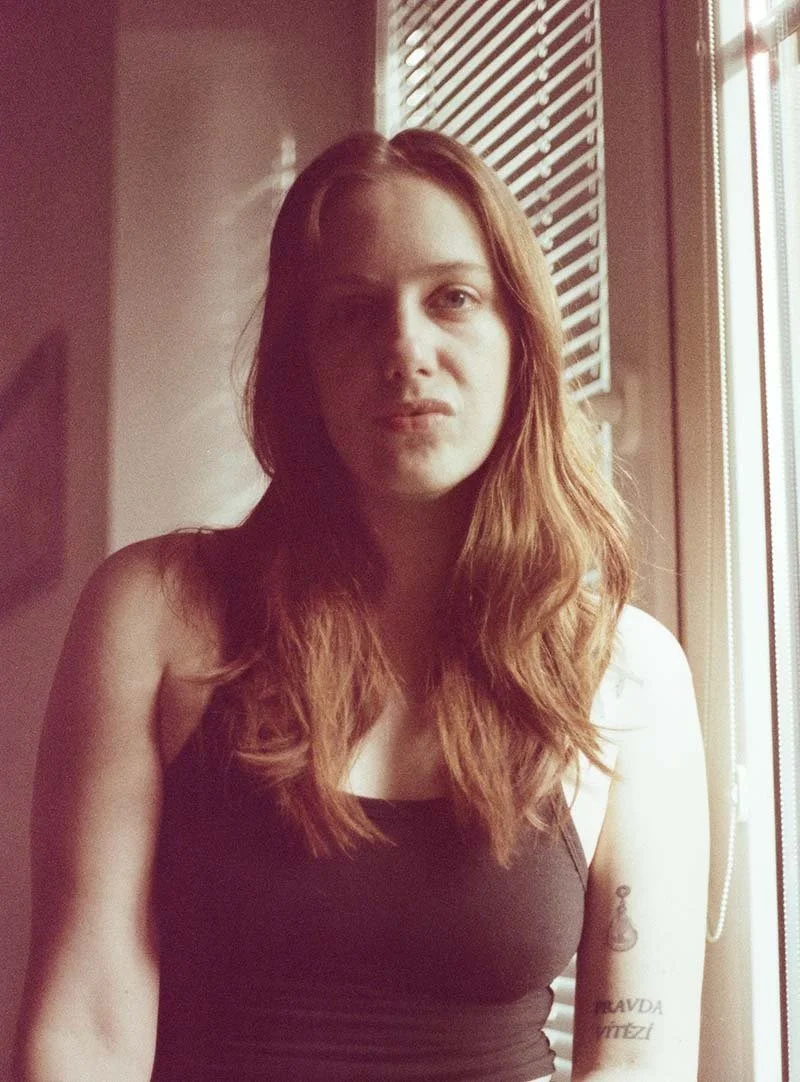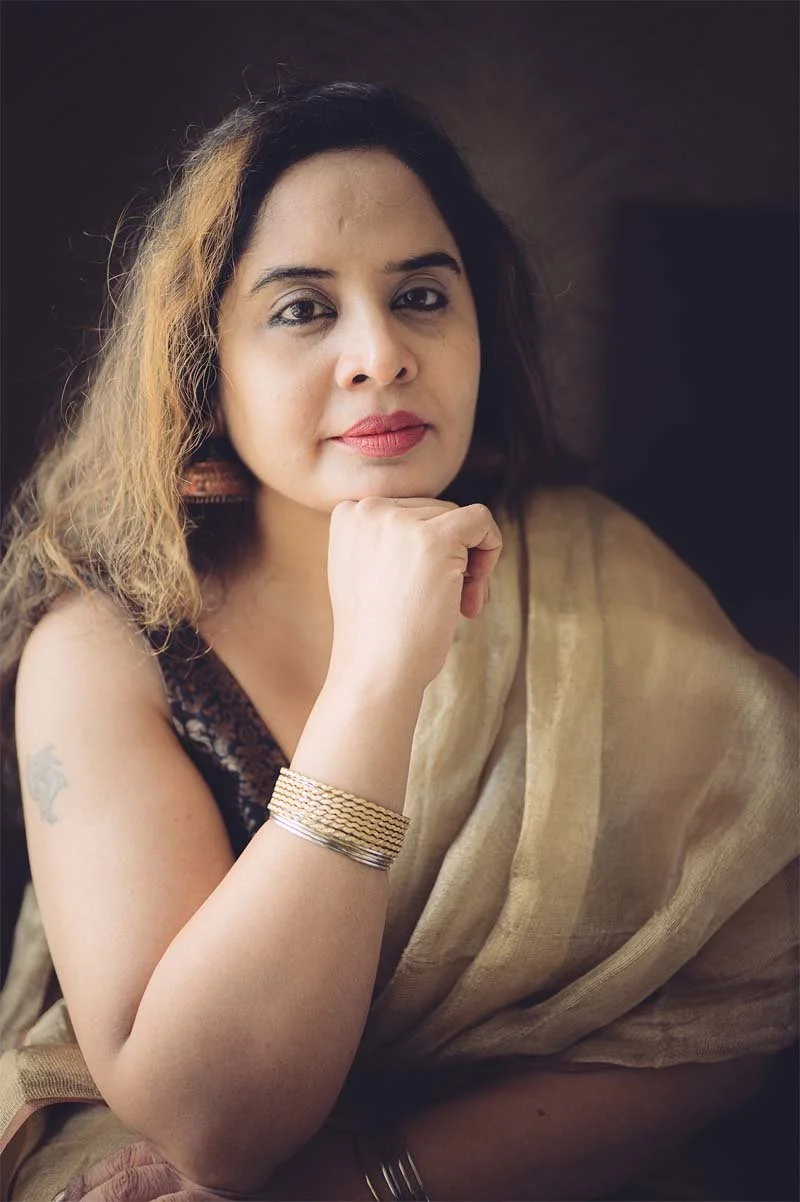Ciera McElroy is the author of Atomic Family (2023), the Southern Literary Book of the Year. She is also the founder and CEO of Clover and Bee Communications, a boutique agency specializing in film marketing, serving clients like Lionsgate and Sony Pictures. Atomic Family was released to critical acclaim, named a 2023 Great Group Read by the Women’s National Book Association, and was short-listed for the VCU Cabell First Novelist Award.
Ciera was raised in Orlando, Florida. She holds a BA from Wheaton College and an MFA from the University of Central Florida. She serves on the Board of Directors for the Kerouac Project, a residency that allows writers to work in Jack Kerouac’s Orlando home. Her work has appeared in The Washington Post, AGNI, Bridge Eight, Iron Horse Literary Review, the Crab Orchard Review, and Saw Palm, among others. She currently lives in St. Louis with her family. @cierahmcelroy
Where were you born and raised? How did it influence your writing and your thinking about the world? I was born in Atlanta and raised in Orlando. Florida is a weird place - so much transience and tourism and volatile weather, but also so much beauty. A lot of my work deals with Southern landscapes and institutions, from religion to entertainment complexes to the ecology itself.
As a young reader, what books were you drawn to? And how did they shape your love of language? I loved the American Girl doll books. I credit those books with sparking my love for historical fiction and place-based work. I was always drawn to books that deepened my understanding of the world or allowed for immersion into another culture. Honestly, I still have a similar taste in books as a younger me: The Book Thief, The Giver, The Hunger Games, The Chronicles of Narnia, and Animal Farm all stand out as favorites.
What does an average day of writing look like for you?
My typical writing day differs depending on where I am in the process of a project and my season of life. When I am in the trenches of drafting a novel, I typically get through the routine of taking my young children to preschool, then return home to read with my coffee. I find it very grounding to read good writing first thing in the morning. I want to be surprised by language. Then, I try to generate new work for at least an hour uninterrupted. I am thankful to be a writer who writes full-time, but that does not mean I am working on my novels full-time. Mid-morning, I transition to my client projects, where I'm usually working through film communications materials. This could mean reading a screenplay for an upcoming project, followed by checking in on the week's creative deliverables and content calendar. I'll have Zoom meetings with clients and colleagues — perhaps some reports due on top-performing creative. After work, I pick up my children and spend the evening with them. And when I'm in the throes of writing a novel, I go back to work after they have gone to bed. I drafted my latest novel in 2024 primarily from 8:00 - 10:00 PM every night. I found it very helpful to book-end the day with the project. I often figured out plot elements by having hours of space in between my writing sessions every day. From an outline perspective, I try to identify the key structural beats of my story on the front-end. But I hold this loosely. If I get into the draft and discover that an expected beat isn't working for how a character has developed, then I listen to my gut and revise the beat sheet accordingly.
Tell us about the creative process behind your most well-known work or your current writing project. Publishing my debut novel Atomic Family took about eight years — it began as an interconnected story cycle developed in an undergraduate writing workshop. I found the interconnected format very freeing for exploring character development and backstory. In that version, we followed the Porter family through various stages in their timeline. There were stories from the Great Depression when Dean and Nellie were children, stories from when they met and married, and then there was one story that changed everything. It was about a father and son building a fallout shelter together in the backyard. The father is a nuclear scientist. His son is obsessed with the threat of nuclear war and has fully bought into the duck-and-cover paranoia. The son asks his father, "What will happen to us if a bomb comes?" The father assures him their shelter would protect them. But of course he knows this is a lie. He believes that the shelter will provide a sense of security for his son. A semblance of a plan. Instead, it does the opposite and becomes a symbol of doom. I sensed pretty early on that I had been circling the central theme of the book. This was it. This was what I wanted to explore: how to live in an age of anxiety, how to protect those we love. In my MFA program at the University of Central Florida, I reworked the project into a circadian novel based on this story. It was a hot mess. Un-outlined. It felt like a monologue. After a workshop session led by Brenda Peynado, I shelved that version and re-wrote the novel completely from scratch and mostly from memory, this time using a careful outline. This process took a lot of rewriting, which I ultimately found very clarifying. It forced me to distill the story to its truest essence.
Do you find notebooks helpful for working things out creatively or emotionally? I have various notebooks for all my different projects, yes. In recent years, I have been less diligent about my own daily journal, but I tend to turn to an old leather-bound diary on the days when I really need an emotional outlet. That diary feels like a prayer.
How do you research and what role does research play in your writing? Research is critical for all of my projects. For Atomic Family, I took an in-depth research trip to the Savannah River Site outside Aiken, South Carolina, as that was the basis and inspiration for the nuclear plant in the book. I also read through my own grandfather's de-classified research reports and memos, much of which I found on sites like Google Scholar.
Which writer, living or dead, would you most like to have dinner with? Margaret Atwood
Which creative disciplines outside of writing do you return to when seeking inspiration? As someone who works in film, I am deeply influenced by film and other visual mediums. I found documentaries and Cold War-era music and art heavily informative for research purposes. But also because it evokes a mood, atmosphere, and the ephemera that you don't get just from history books. I do have playlists, most of them soundtracks, for my projects. I listened to the music from The Theory of Everything on repeat for Atomic Family.
AI and technology are changing the ways we write and receive stories. What are your reflections on AI, technology, and the future of storytelling? As a writer, how do you think we should respond to the rise of machine-generated content? Like almost all writers I know, my book was among the millions stolen by Meta's AI training program. This is a critical time to preserve human-made work. However, I also see that there is so much good potential for AI. We should strive to use AI in ways that enrich our work. (Spell-check is already a kind of AI. Most of us have been using this kind of artificial intelligence for years, one way or another.) I think we should advocate for ways to use AI and advancing technologies responsibly - while ensuring that copyright protections remain in place, that major companies cannot use writers' original work without consent and compensation.
Tell us about some books you've recently enjoyed and your favorite books and writers of all time. Margaret Atwood is up there as one of my favorites of all time! Recently, I have been enjoying thrillers like The Midnight Feast by Lucy Foley, and the amazing narrative journalism of Amanda Montell's Cultish. Two international works I recently read and loved are The Safekeep by Yael van der Wouden and The Night Guest by Icelandic author Hildur Knútsdóttir. I'm loving works that center women's stories and have razor-edge tension!
For you, what is the importance of arts, culture, and The Creative Process? The creative process is deeply human and personal — and, importantly, it's also always evolving. I am 29 years old, a young mother, balancing my responsibilities with two children (4 and 2), a growing business, a published novel, a screenplay-in-development, a second novel heading on submission, and much more. My process drafting Atomic Family before my son was born is not something I am able to follow anymore. Gone (at least for now) are the days I could write in long quiet stretches all morning. I am thankful for this, even as my attention feels split between so many needs and pursuits and desires. It feels to me like there are creative seasons or eras, and this gives me permission to acknowledge that the season I am in may be less visibly productive or may be less traditionally structured. I am not someone who sets firm word count goals per day. And that's alright. What matters is that I am engaging with the work, sitting with it, and following the story's pace.
















































































